Figure shows the position-time graph of a body of mass 0.04 kg. Suggest a suitable physical context for this motion. What is the time between two consecutive impulses received by the body ? What is the magnitude of each impulse ?
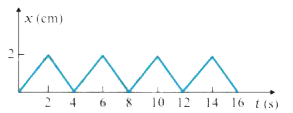
A body with a constant speed of 1cms−1 receives impulse of magnitude 0.04kg×0.02ms−1=8×10−4kgms−1 after every 2 s from the walls at x = 0 and x = 2 cm.
Topper's Solved these Questions
- LAW OF MOTIONBOOK - NCERT BANGLISHCHAPTER - LAW OF MOTIONEXERCISE - EXERCISE
23 Videos
- KINETIC THEORYBOOK - NCERT BANGLISHCHAPTER - KINETIC THEORYEXERCISE - ADDITIONAL EXERCISE
3 Videos
- MECHANICAL PROPERTIES OF FLUIDS BOOK - NCERT BANGLISHCHAPTER - MECHANICAL PROPERTIES OF FLUIDS EXERCISE - EXERCISE
43 Videos
Similar Questions
Figure shows the position-time graph of a particle of mass 0.04kg. Suggest a suitable physical context for this motion. What is the time between two consecutive impulses received by the particle? What is the magnitude of each impulse?
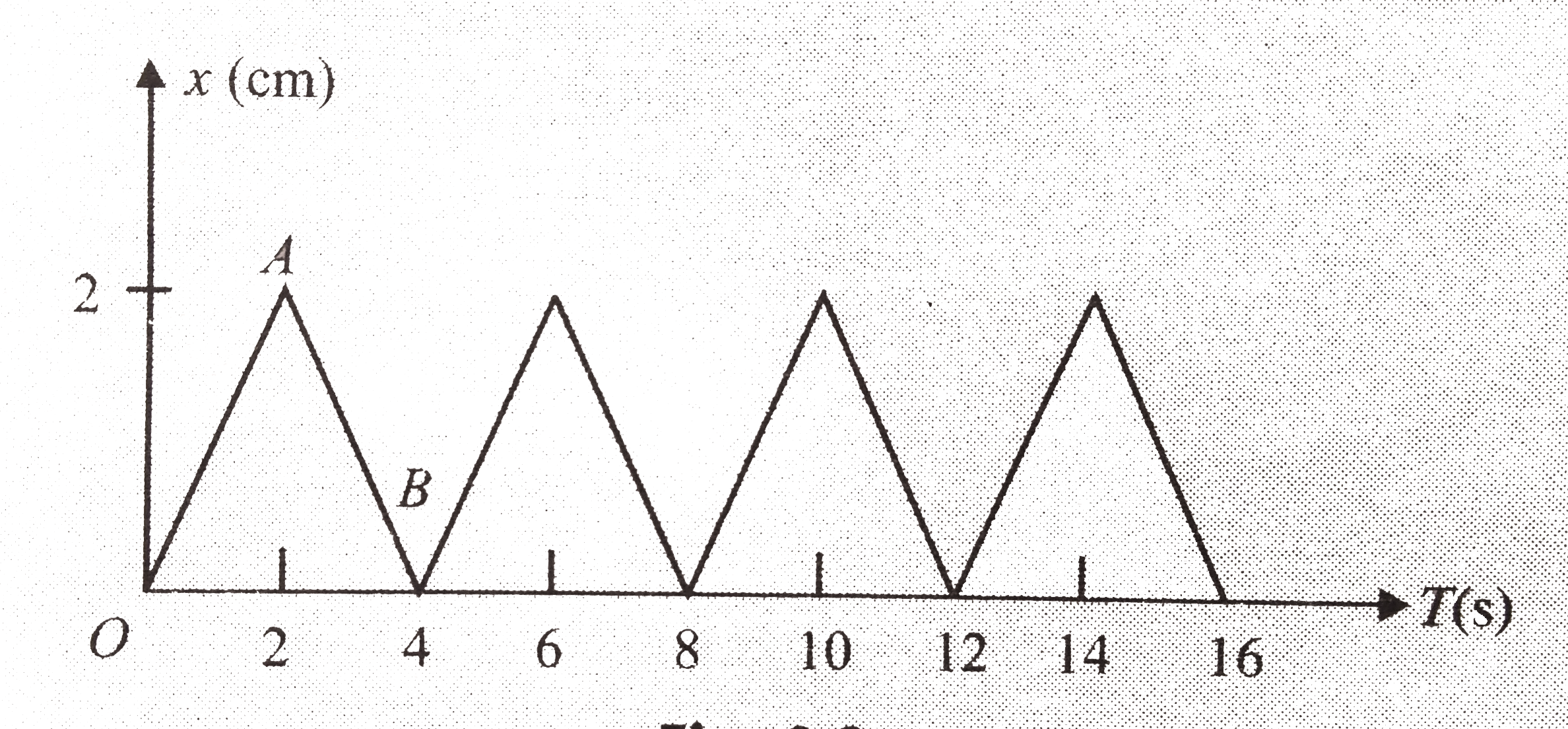
View SolutionFigure shows the position-time graph of a particle of mass 0.04kg. Suggest a suitable physical context for this motion. What is the time between two consecutive impulses received by the particle? What is the magnitude of each impluse?

View Solution
Knowledge Check
The position-time graph of a body of mass 0.04kg is shown in the figure. The time between two consecutive impulses received by the body and the magnitude of each impulse is
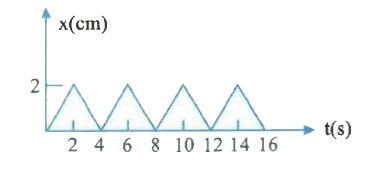 A4sec,4×10−4kgm/sB2sec,8×10−4kgm/sC6sec,4×10−4kgm/sD8sec,8×10−4kgm/s
A4sec,4×10−4kgm/sB2sec,8×10−4kgm/sC6sec,4×10−4kgm/sD8sec,8×10−4kgm/sFigure shows the position-time (x-t) graph of one dimensional motion of a mass 500g. What is the time interval between two consecutive impulses received by the body?
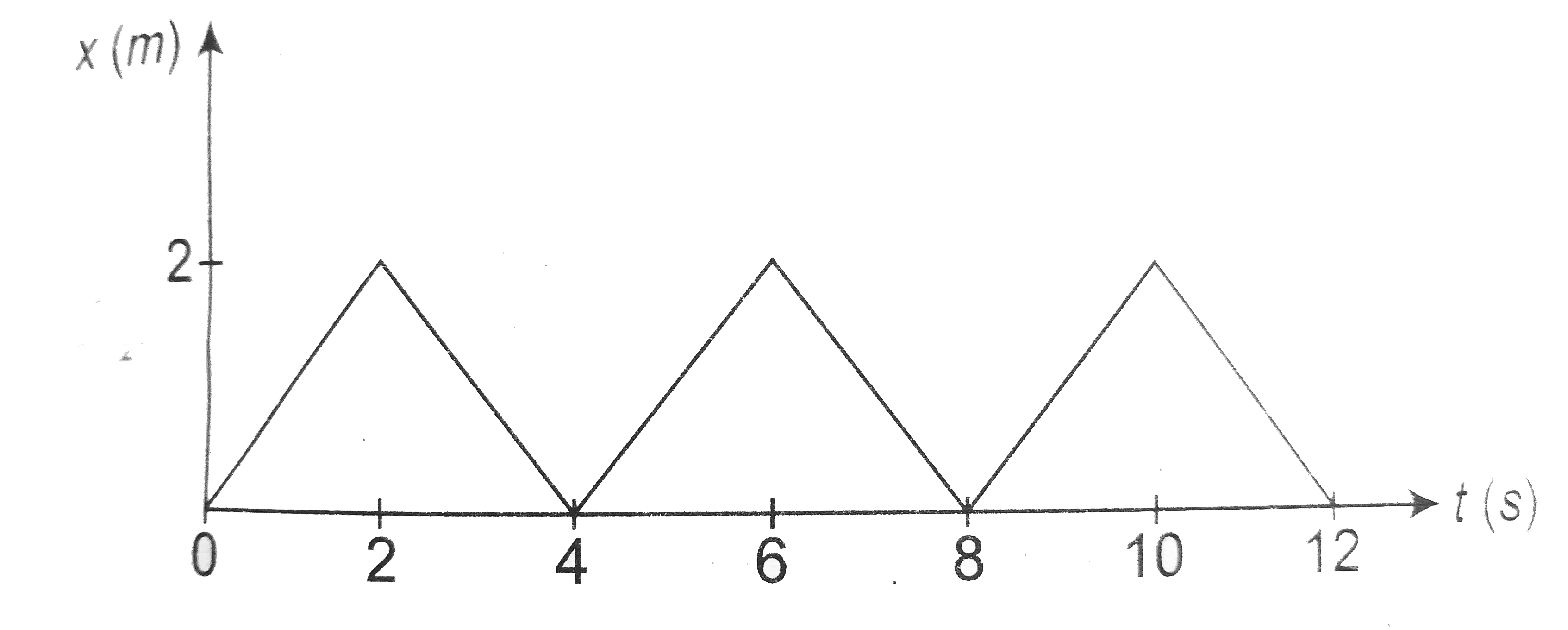 A2sB4sC6sD8s
A2sB4sC6sD8sFigure shows the position-time (x-t) graph of one dimensional motion of a mass 500g. What is the time interval between two consecutive impulses received by the body?
 A2sB4sC6sD8s
A2sB4sC6sD8s
Figure shows the position-time graph of a particle of mass 0.04kg. Suggest a suitable physical context for this motion. What is the time between two consecutive impulses received by the particle? What is the magnitude of each impluse?

View SolutionShows the position time graph of a particle of mass 0.04 kg Suggest a suitable physical context for this motion What is the time between two conscutive impulse recevived by the particle ? What is the magnitude of each impulse ?
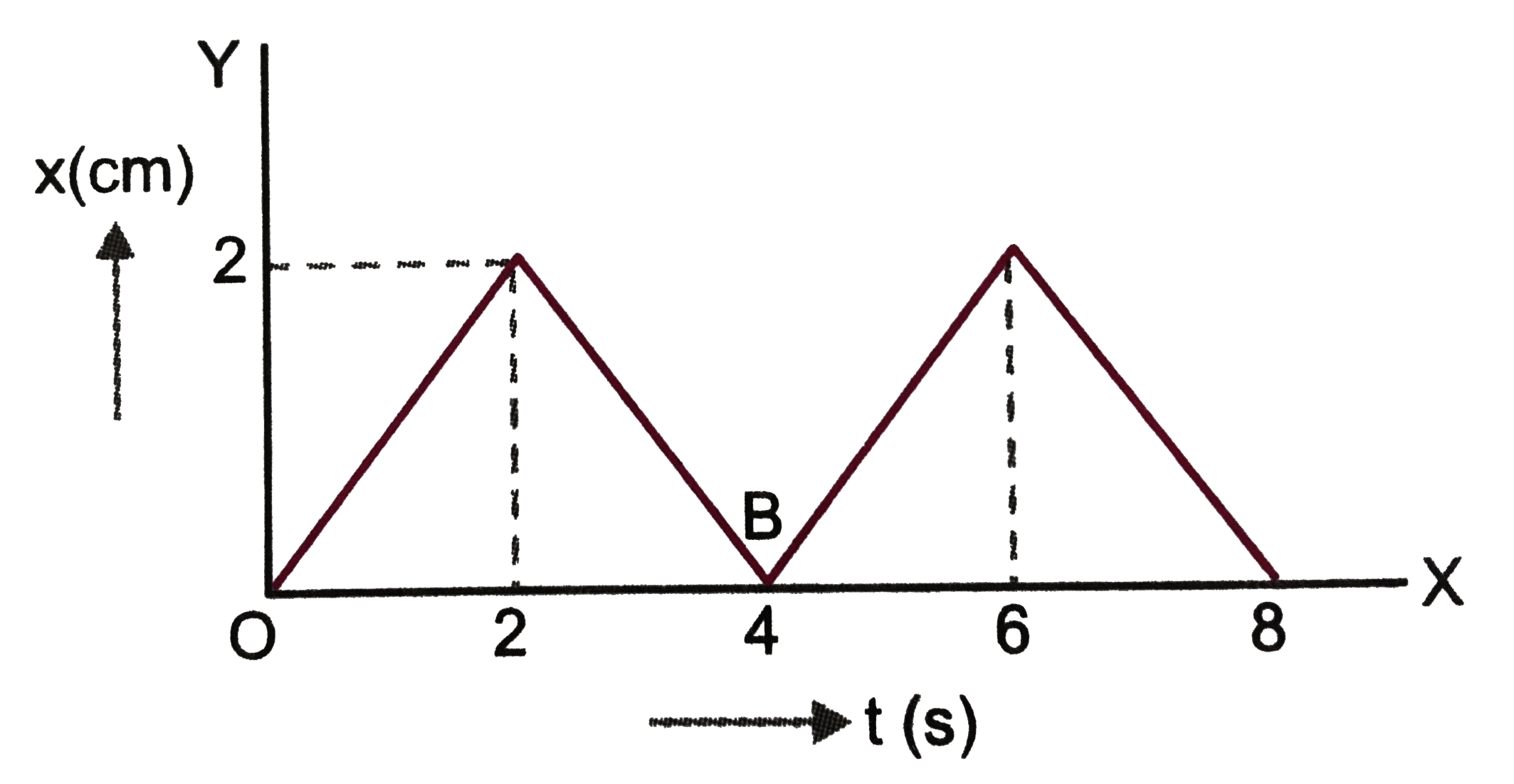
View SolutionThe position time graph of a body of mass 2kg is as given in What is the impulse on the body at t=0 s and t=4s ?
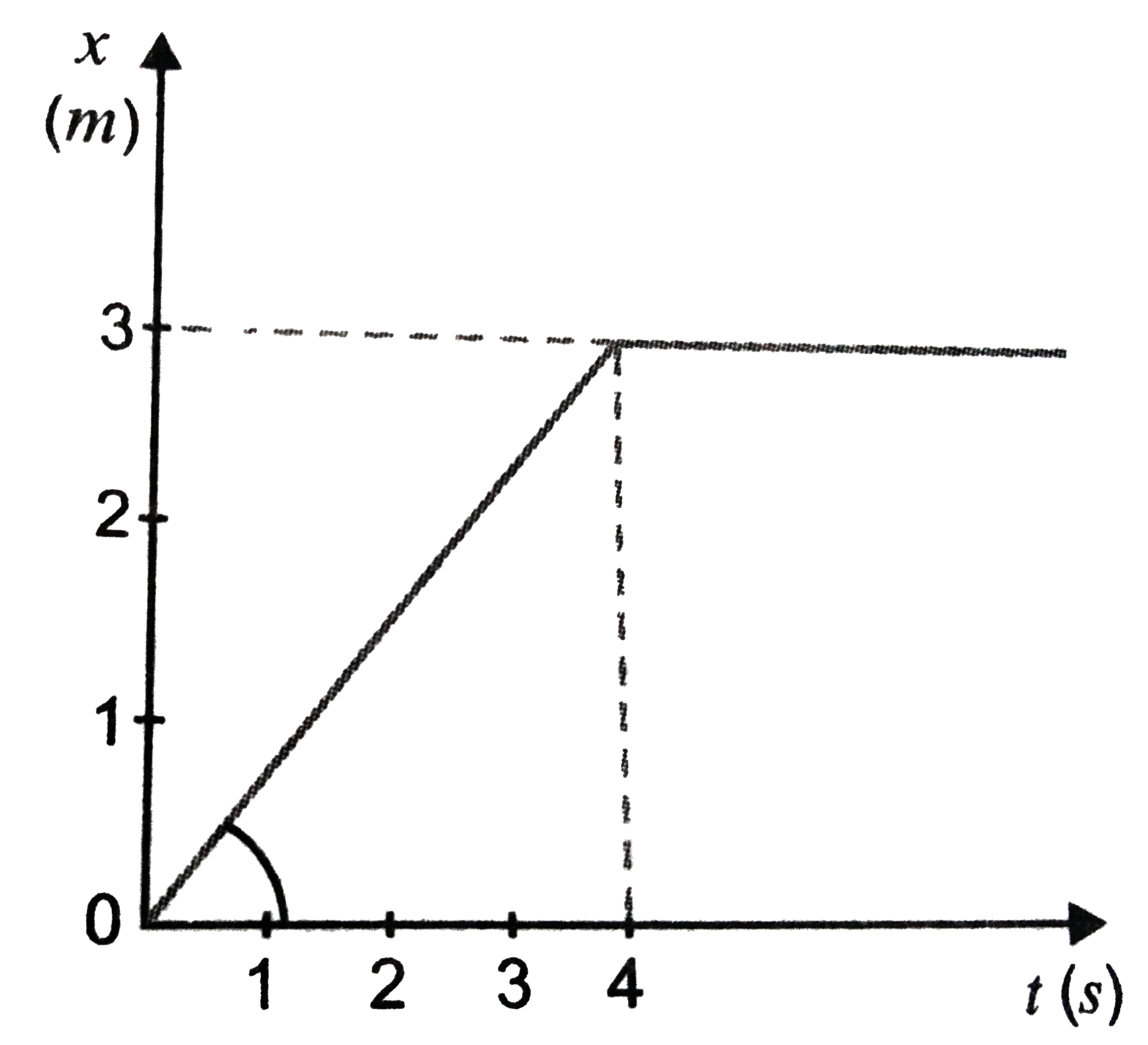 .
.
View SolutionThe position-time graph of a particle of mass 0.1 kg is shown. The impulse at t = 2s is :
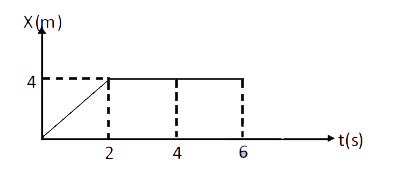
View SolutionThe position time graph of a body of mass 2kg is as given in What is the impulse on the body at t=0 s and t=4s ?
 .
.
View Solution
